A boy named Joaquim runs restlessly among toys spread on the classroom’s floor. There are colorful posters displayed on the walls, but it’s not a class day, and Joaquim is not a student here, either. Desks in this classroom in the city of Canoas, in the Brazilian state of Rio Grande do Sul, are piled up on the sides to make way for mattresses, turning classrooms into dorms. The space previously used by students is now occupied by whole families. And there are many of them, housed in makeshift accommodations after torrential rains flooded whole cities and left hundreds of thousands of people without shelter.
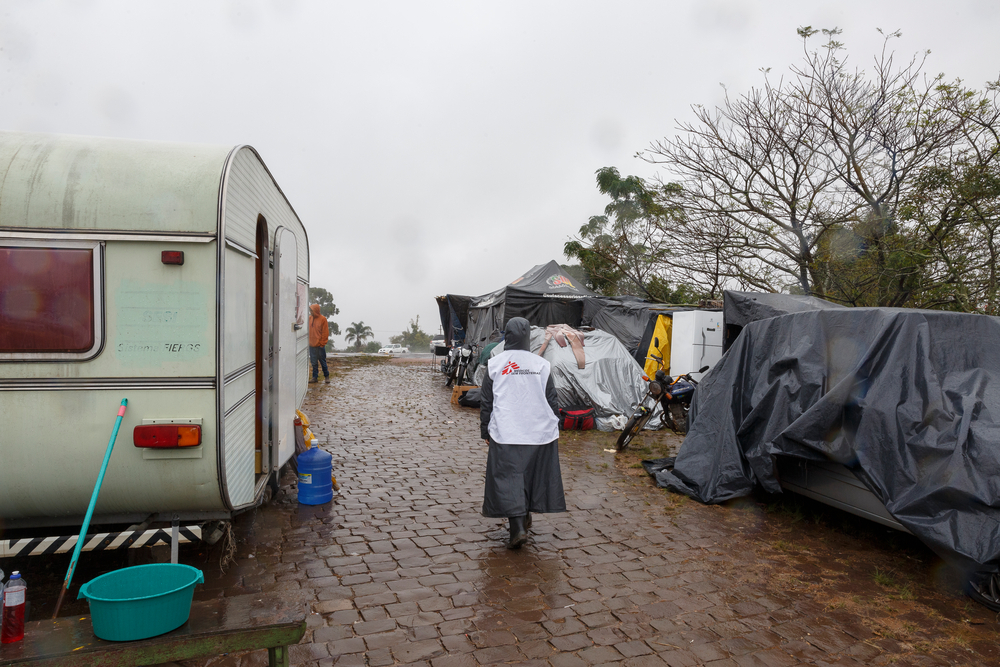
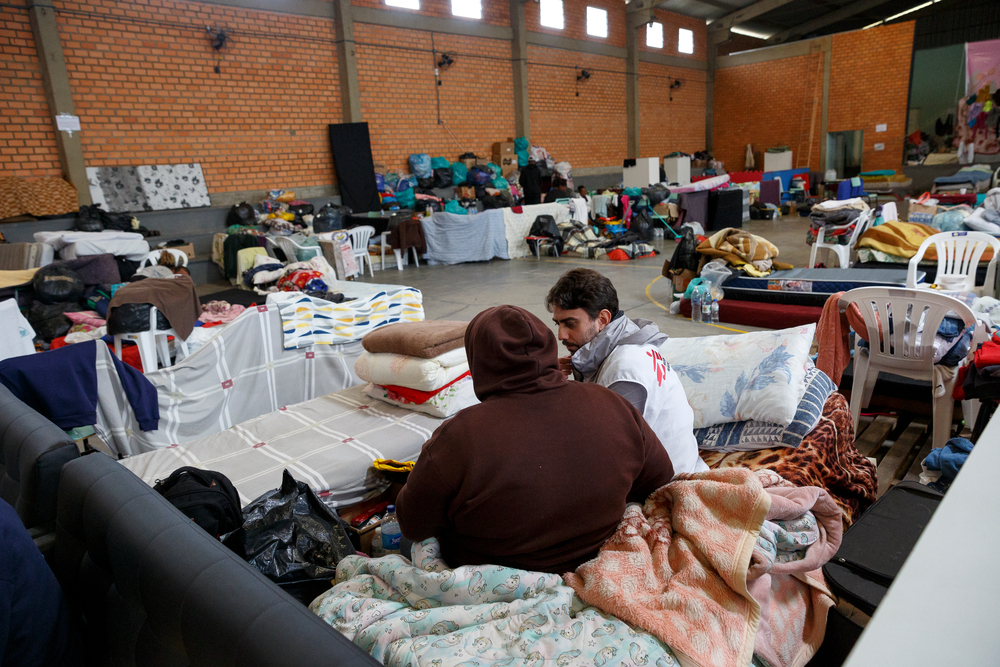
About 400 people now live in this shelter at the Paulo Freire Municipal School. The place has been receiving people from many neighborhoods of Canoas. It’s the state’s third most populous city, with 350 thousand inhabitants, and 180 thousand of them had to leave their homes. A team of Médecins Sans Frontières/Doctors Without Borders (MSF), with doctors, nurses, psychologists and health promoters, offer medical and mental health assistance to the people in the shelter.
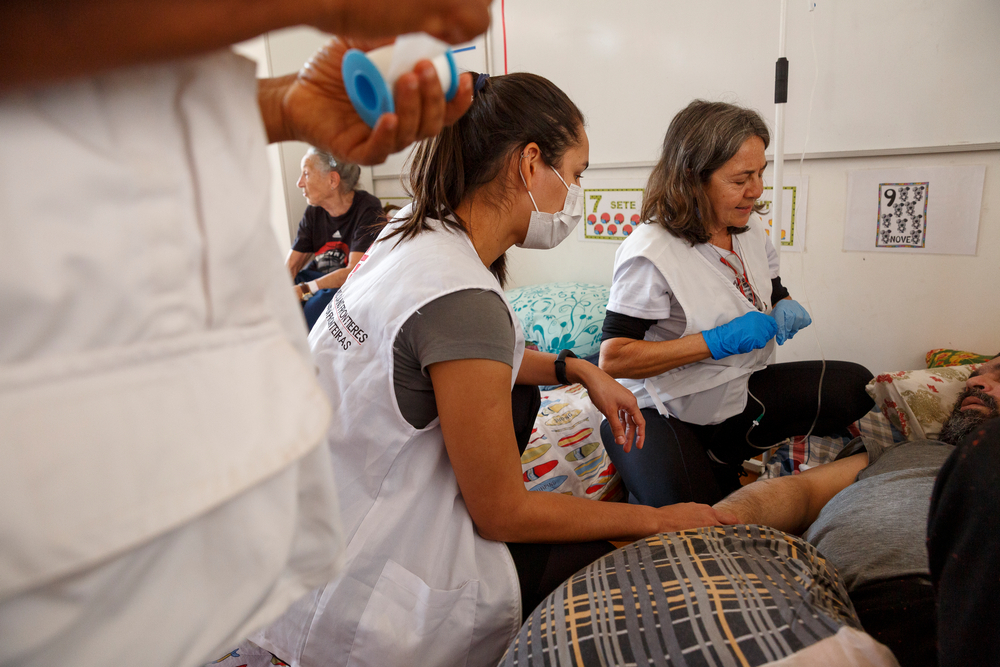
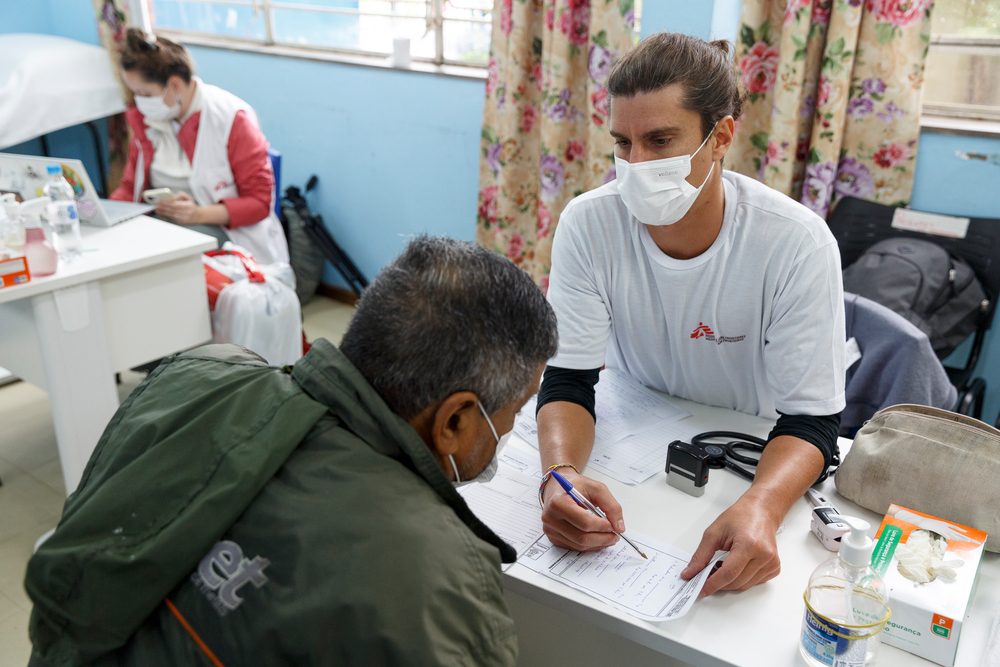
It’s important to assist patients with chronical conditions, because many of them had to stop their treatment when their medication was lost in the flood.
At least 5 people have died and more than 120 have been infected with leptospirosis, which is transmitted by contaminated water. The condition can be lethal if it’s not quickly treated.
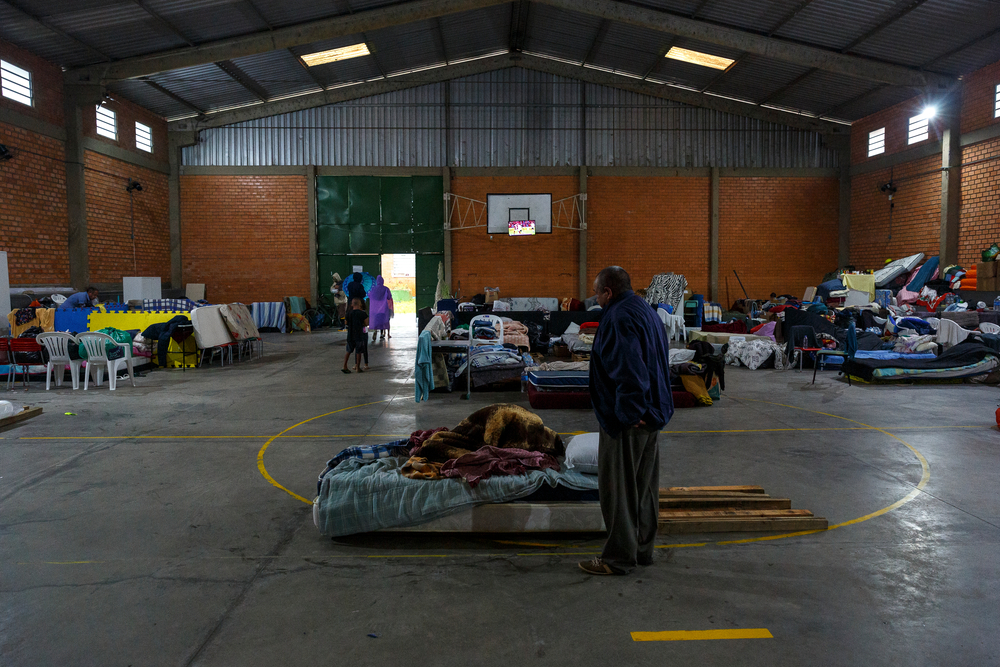
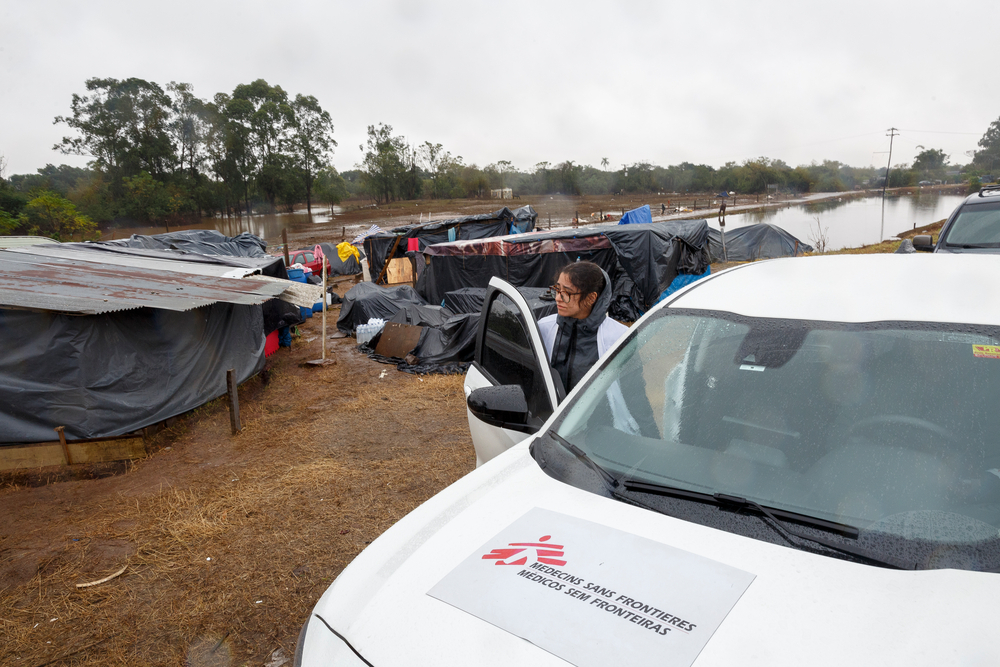
Maria do Carmo de Andrade, 78, and her son, Alexsandro de Andrade, were also seen by the MSF team. He has pneumonia that got worse because of the cold. They were both rescued after waiting for more than two days at the window of their home’s second floor. “My son tells me: ‘Mother, get real. We lost everything’. But I am very strong. I try to relax a bit, making jokes with him. Truth is, and I say it, we will have to get up on our feet again”, she says.












